Recruiting Your Rising Stars: Engaging the Insurance Industry’s Emerging Talent

Recruiting Your Rising Stars: Engaging the Insurance Industry’s Emerging Talent
July 23, 2025
Wednesday 1:00 p.m.-2:00 p.m. ET
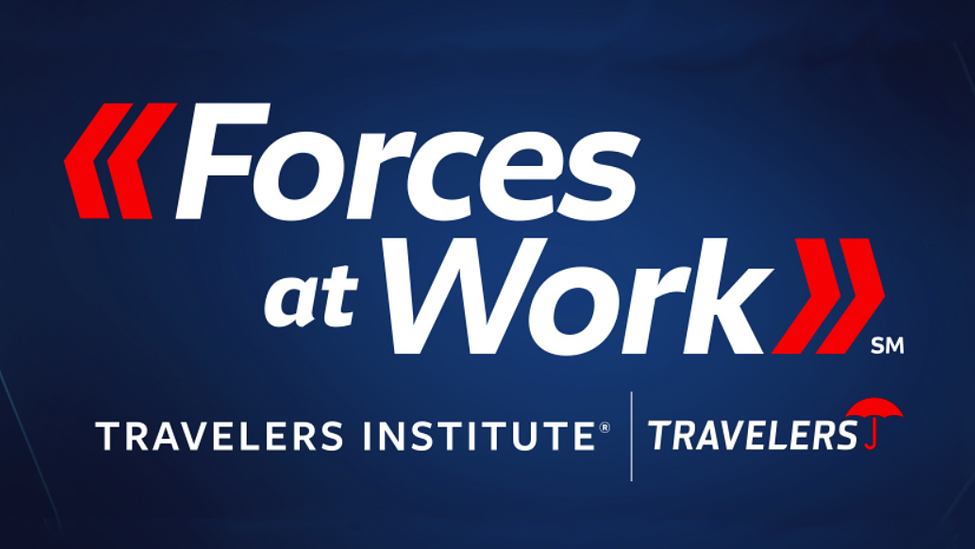
Who are the students and emerging professionals in insurance and risk management today, and what are they looking for in future employers? What do they value most when making career decisions? Gamma Iota Sigma Board of Trustees member and Travelers Executive Vice President and Personal Insurance President Michael Klein, Denise Perlman, Chief Executive Officer of Middle Market at Aon, and Robert Hartwig, Ph.D., CPCU, Associate Clinical Professor of Finance and Director of the Risk and Uncertainty Management Center at the University of South Carolina, shared their unique insights both as leaders in the industry and as mentors for emerging talent. They provided perspectives on how the insurance industry can create meaningful career pathways and rewarding careers for tomorrow’s rising stars.
This program is presented as part of the Travelers Institute’s Forces at Work initiative, an educational platform to help today’s leaders navigate the shifting dynamics of the modern workplace and prioritize employees and their well-being.
Gamma Iota Sigma is an international professional student organization that promotes, encourages and sustains student interest in insurance, risk management and actuarial science as professions. GIS has 117 collegiate chapters nationwide with 6,000+ students and 35,000 alumni from over 170 colleges and universities throughout North America.
Please note: Due to the nature of the replays, survey and chat features mentioned in the webinar recordings below are no longer active.
Watch webinar replay
[MUSIC PLAYING]
(DESCRIPTION)
SLIDE. Text: Wednesdays with Woodward (registered trademark) Webinar Series.
SLIDE. A photo of a laptop on a desk next to a red mug with a white Travelers umbrella logo, the laptop with the Wednesdays with Woodward (registered trademark) Webinar Series logo. Logos: Travelers Institute (registered trademark), Travelers. Jessica Kearney speaks to us from her office in the upper right corner.
(SPEECH)
JESSICA KEARNEY: Good afternoon and welcome. I'm Jessica Kearney, Vice President for Public Policy here at the Travelers Institute. And I'm standing in today for our host, Joan Woodward. So delighted to have you here with us to explore a topic that we know is on many leaders' minds today-- talent.
Here at the Institute, we've hosted numerous programs on how to attract and retain top talent within your organization, and we know it's been extremely popular.
(DESCRIPTION)
SLIDE. Logos: Forces at Work (service mark), Travelers Institute (registered trademark), Travelers.
(SPEECH)
It's actually a part of a new educational platform that we recently launched at the Institute called Forces at Work, helping today's leaders navigate the shifting dynamics of the modern workplace-- and we know there are many-- and to prioritize employees and their well-being, which is a key and critical part of that equation.
So there's so much to get into today. But before I begin, let me share a brief disclaimer about today's program.
(DESCRIPTION)
SLIDE. Text: About Travelers Institute (registered trademark) Webinars. The Wednesdays with Woodward (registered trademark) educational webinar series is presented by the Travelers Institute, the public policy division of Travelers. This program is offered for informational and educational purposes only. You should consult with your financial, legal, insurance or other advisors about any practices suggested by this program. Please note that this session is being recorded and may be used as Travelers deems appropriate. Logos: Travelers Institute (registered trademark), Travelers.
SLIDE. Text: Wednesdays with Woodward (registered trademark) Webinar Series. Recruiting Your Rising Stars: Engaging the Insurance Industry's Emerging Talent. Logos: Travelers Institute (registered trademark), Travelers, MetroHartford Alliance, Ready CT (Education-- The Engine of Opportunity), Gamma Iota Sigma, UCONN School of Business MS in Financial Technology, University of South Carolina Darla Moore School of Business, American Property Casualty Insurance Association (Insuring America, apci.org), N.A.A.I.A. National African American Insurance Association, Big i (registered trademark) Independent Insurance Agents and Brokers of America.
(SPEECH)
I'd also like to extend a special thank-you to our esteemed webinar partners, which you can see on screen here today-- Gamma Iota Sigma, the Risk and Uncertainty Management Center at the University of South Carolina's Darla Moore School of Business, the National African American Insurance Association, the Master's in FinTech Program at the University of Connecticut School of Business, MetroHartford Alliance, the American Property Casualty Insurance Association, the Big I and ReadyCT. Thank you all and welcome to all your members and networks.
So as your organizations look to bring on rising stars, today we're going to be asking, who are the future leaders in insurance and risk management? And what are they looking for from employers? A really key question, right? Also, what drives their decisions on which opportunities to take in their careers and also where to stay, which employers to stay with for the long term?
(DESCRIPTION)
SLIDE. Text: Speakers. A photo of each speaker appears above their name and titles. Text: Jessica Kearney, Vice President, Public Policy; Travelers Institute, Travelers. Robert Hartwig, Ph.D., CPCU, Associate Clinical Professor of Finance; Director, Risk and Uncertainty Management Center, University of South Carolina. Denise Perlman, Chief Executive Officer, Middle Market, Aon. Michael F. Klein, Executive Vice President; President, Personal Insurance, Travelers.
(SPEECH)
So I'm thrilled to introduce our speakers today. They bring a wealth of experience and insights on crafting meaningful careers and rewarding opportunities. First, I'd like to welcome Dr. Robert Hartwig. Bob heads the Risk and Uncertainty Management Center at the University of South Carolina's Darla Moore School of Business, where he is also a Clinical Associate Professor of Finance. Leading a University Risk Center means Bob's going to share all his latest insights and conversations with students as they're beginning to step into the working world.
Bob's research also dives deep into insurance markets and risk management. I'm sure he's a very familiar face for many of you here on the call today. He's a familiar face within the industry, having served as President and Economist for the Insurance Information Institute and a frequent guest here on our program. In addition to his Ph.D., Bob holds a CPCU designation, which he's going to talk a little bit more about in the context of emerging talent on today's program.
Next up, we have Denise Perlman. Denise is the Chief Executive Officer within Aon's North America middle market segment. She is responsible for crafting and executing strategies for middle market clients across risk capital and human capital solutions.
Prior to joining Aon, she served as President of National Business Insurance at Marsh McLennan Agency. She brings extensive and expansive experience in insurance. And in particular, she's known for her expertise in commercial property and casualty and risk management.
Denise also has years of experience on the board of Gamma Iota Sigma, and we're going to hear some of their survey data today and get a little background and color and context from them. A quick note on Gamma.
So, Gamma is the international professional student association dedicated to promoting, sustaining and growing student interest in careers within insurance, risk management and actuarial science. So, it's really an amazing group. They have 117 chapters at 170 colleges and universities throughout North America. So really great stuff, and we're going to hear more about that organization coming up shortly, which brings me to our final speaker, Michael Klein.
Michael is Executive Vice President and President of Personal Insurance right here at Travelers, where he leads 3,000 people across his organization. He has over three decades in the insurance industry, and he's led various business units, bringing a really rich background in commercial insurance and underwriting. And Michael is a member and the immediate past president on the Gamma Iota Sigma board. So I'd like to welcome all of our speakers today. Thank you so much for joining us.
(DESCRIPTION)
A split screen shows each of the four speakers, each speaking to us from their own offices.
(SPEECH)
Well, we're going to kick off our conversation today, as we often do on our Wednesdays with Woodward program, with a little audience poll. So we will gauge the audience and get a pulse on how everyone's thinking and feeling about emerging talent. So if you've entered the insurance industry within the last five years or so, what key factors did you value when making your decision? You can select all that apply, and we'll see which areas are rising to the top here.
So Bob, Michael, Denise, you can see some of the results here on screen. It looks like 63% are looking-- were looking for competitive compensation and benefits. Another 59%, work-life balance. Another 50% said positive company culture rising to the top. I'm curious, anyone have any initial reactions. Is that what you would have expected?
(DESCRIPTION)
Denise Perlman.
(SPEECH)
DENISE PERLMAN: I, actually, in some of my findings, align perfectly to the respondents to the poll. So company culture, work-life balance, attractive compensation and benefits definitely top of the list.
(DESCRIPTION)
Robert Hartwig.
(SPEECH)
ROBERT HARTWIG: And this is Bob here. The training opportunities and career development rates at 48%, I would say that, since I'm dealing primarily with students as opposed to people who've been in the industry, perhaps for as long as five years, I would say that a No. 1 question and a No. 1 concern for students would be that they're not just going to be brought on board and left in a cubicle by themselves.
(DESCRIPTION)
The other speakers nod in agreement.
(SPEECH)
They need to know that they're going to be mentored and appropriately trained, and that there's going to be someone there who-- they're going to work hard, but who has their back and help shepherd them along in the organization. Particularly in a large organization-- they might be moving to a new city; they don't know anybody-- they are going to have a little trepidation over that. So when you're a 22-year-old about to graduate, that is a concern.
(DESCRIPTION)
Michael Klein.
(SPEECH)
MICHAEL F. KLEIN: And I'm probably not qualified to answer since I didn't join the industry in the last five years, which you can probably tell by looking at me. But I probably would have checked all of the above. And the one that I'm interested in-- and hopefully through our conversation today we can shed some light on-- is the relatively low response on alignment with company mission and purpose. I think our industry has a very noble mission and purpose, and I'd love to spend some time talking about that as we go through the conversation today as well.
JESSICA KEARNEY: Wonderful, thank you. Well, I'm glad we were able to pull that up on screen and just do a little icebreaker there and get a pulse on the audience. And now let's fully get into the three perspectives that you all bring because we thought long and hard about what insights to bring to this conversation, how we talk about this topic because it's such an expansive one.
So Michael, let's start with you. I know you actually had the idea to host this program last year, and we've been talking about it since then of looking at the heads of university insurance programs and those leading hiring within the industry. I also mentioned that you're on the Board of Trustees for Gamma Iota Sigma, not to mention all the hiring that you do here at Travelers and that your teams do here at Travelers. So you're deeply involved and invested in developing the next cohort of insurance leaders. Can you share why you wanted to have this conversation today, why it was so important?
MICHAEL F. KLEIN: Sure. I'll share a-- I'll give you three quick ones-- two professional, one personal. So from a professional standpoint, full disclosure, I and we are in the business of recruiting talent in the industry. So having jobs available, help wanted sign up is a good thing for us, selfishly.
(DESCRIPTION)
Jessica and Denise smile.
(SPEECH)
But the other thing I would say from a professional standpoint is it’s important to raise awareness across the industry, which is part of the reason I and we are involved in Gamma Iota Sigma on the varied careers available in the insurance industry. And I know we're going to talk about that some today.
And the personal motivation for me on this topic is I really didn't have the benefit of programs like these when I was thinking about what career I was going to pursue. And it took a long time for me to become aware of careers in insurance. And once I did, I pursued it. And I'm fortunate to be sitting here today with you all having this conversation as a result.
My really quick story-- I went to Minnesota State, Mankato-- go, Mavericks-- and I was a math major, really not knowing what I was going to do. And I was working my way through college as a manager at McDonald's. And a delivery truck driver knew I was in college, knew I was a math major, asked me what I was going to do, and I said I wasn't really sure.
And he said, well, have you thought about becoming an actuary? And I said, no, what's an actuary?
(DESCRIPTION)
They all smile.
(SPEECH)
And he said, well, I don't really know either, but my brother-in-law is one. And he works for an insurance company. He really likes his job, and it seems like a pretty good gig. And the rest is history.
But for that chance interaction, I don't know that I would have been aware of that career path, let alone the others in the industry. And so it's really important to me to make sure that given the opportunities like this one that I share with folks the great opportunity available in this industry and the great work that we do, which I know we'll get into as we go through the rest of the conversation.
JESSICA KEARNEY: I love it. I love it. Thank you for sharing that. Bob, I mentioned that you lead a University Risk Center at the University of South Carolina, so you have a very unique perspective on emerging talent. Could you tell us a little bit about your program and about the students that you teach?
ROBERT HARTWIG: Sure. So our risk management and insurance program has been around about 50 years. It's one of the oldest ones in the country. It's also one of the largest ones in the country. And we have students from all over the country in our program. Here in the business school, only about actually about a third of the students from South Carolina itself. And the vast majority of my students come from outside of the state.
And so that means they are looking for jobs all over the country, internships all over the country. So they go everywhere. So I really love the idea of being able to seed and populate the insurance industry all across the country with really, really great talent.
We're a little bit different in the sense that our risk management insurance program is housed within our finance department. And so you can get a degree in RMI, a degree in finance with just a few additional courses on either one. And so many of our students are very much equipped to take internships and careers, not just in the insurance world, broking world, that kind of thing, but also in the banking world and elsewhere.
There are a huge number of jobs related to risk management in other financial services.
(DESCRIPTION)
They all nod.
(SPEECH)
I have students who get jobs every year. Their title is underwriter, but they're in a bank, and they're assessing risks with respect to that. But these skills are interrelated. And some students will go back and forth between one or the other, and so there's a compounding of skills that goes on there. And so that's great.
But in terms of some of the things that gets our students the most excited or what are they most anxious about-- all my students are seniors and juniors. And so by the time they get to that point, they're very-- beginning to be very focused and not entirely focused on their job, their career. And their parents are getting on them every time they get home, all right? So
(DESCRIPTION)
They all smile.
(SPEECH)
they're going to have a little bit of excitement, a little bit of anxiety associated with that.
But look, for the outstanding talent that we have as they approach their graduation, or maybe their first internship, overwhelmingly, they're excited because it's something new. They have a thirst for learning. And I try to feed that thirst whenever I have them in class, usually the last two years of school.
And most are just also excited because it's going to be-- they're flying the coop. They are going to be living on their own for the first time. They've been in school since they were four or five years old. They're 22 now. Their adult lives literally begin. So there's a kind of joie de vivre that goes along with the excitement of a new career, moving in a new city with a new company, very enthusiastic.
What are they concerned about? Well, there's always anxieties associated with new situations like this. But in terms of specifically what's happening in the world today, I talk about technological innovation, for instance, in some of my courses and how that might be changing the world of underwriting and such or claims management. And it's appropriate for me to talk about that, but it also does instill some anxiety.
Students hear everything about AI these days.
(DESCRIPTION)
They nod.
(SPEECH)
And if they read on their own, they might hear that certain careers might disappear as a result of AI. So technology anxiety for people who are about to enter the industry, I think, is maybe running a little bit high right now. I'm old enough to remember when, as the internet was being adopted, people had a similar kind of anxiety associated with that.
And I think that insurers-- and it's also incumbent on myself to understand that these technological innovations are not all being created so that the company can get rid of you as soon as possible and reduce the expense ratio as a result of that. It's to make you-- it's to give you tools to be able to do your job better. And I think that in the interview process, or during internships, I think students really need to get a sense of that because they do hear about certain jobs being replaced by technology. And that's something that's getting a little bit of high anxiety these days.
JESSICA KEARNEY: Yes, a lot of headlines today for sure. Thank you for that, Bob. And I'm looking forward to digging into more of the insights in the classroom as folks transition to the working world. And Denise, I want to set the stage with you as well because you're bringing in a perspective from the broker perspective. And I'd love just if you could share with the audience any trends that you're seeing from emerging talent from where you sit.
DENISE PERLMAN: Yeah. No, absolutely. And Bob, this goes hand in hand with what he was saying. We are seeing new entrants into the insurance brokerage side of the business very digitally savvy, comfortable using digital tools, platforms to streamline processes, improve the customer experience, improve efficiency in many different ways.
I think we're seeing this emerging talent and younger professionals joining our firm. They're open to innovation. They're open to change. They're willing to adopt new technologies and different methods to improve things like service delivery and, again, things like operational efficiency.
And this is a personal story. So, I have a 10-year-old daughter. And she's 10, and she's helping me with how to embrace AI and how to use it to make me more effective. And so I think that that's really interesting to see. She's not even anywhere near entering the workforce. But I think that it's definitely our future and making sure that people that are coming into this industry, or any industry using AI, that they're embracing it.
I will say our Aon talent team gave me some data on a survey that we conducted, and there were some top five most influential characteristics that attract some emerging talent. And close to 50% was provides better-than-average pay, meaningful benefit plans, but close to over 25% was a fun place to work.
So culture, it all comes back to culture. Does this fit into my values? Michael, to what you were talking about earlier, too-- so I think that we're seeing people that want to be part of something that they can make a change. And sustainability and social responsibility are key factors for them.
JESSICA KEARNEY: That's great. Thank you. And just to underscore what you said, there's so much that we can learn from each other. It's a two-way conversation all the way. So I think that-- I'm hoping that's helpful kind of setting the scene from the three perspectives for our audience where you're all coming from.
Let's talk about the job market today, the labor market today. And Michael, I'll start with you. I mentioned you run Travelers’ personal insurance business and that you have an organization of 3,000 folks in Personal Insurance. Could you give us any color or context into what hiring looks like today, and especially in those up-and-coming emerging talent roles?
MICHAEL F. KLEIN: Yeah, I'd be happy to. I think one thing I would preface it with-- and I think it's terrific that we've got Bob from the academic side, Denise from the broker side, me from the carrier side, just demonstrating the breadth of opportunity available. Even Bob's point about risk management isn't only about insurance. So that, I think, just helps to set the context for this conversation.
What I would say hiring looks like today, frankly, is it's competitive. And it's competitive in both directions. We hired hundreds of interns here at Travelers this summer, about 500. We had thousands of applicants. Think 10-plus applicants for every position.
So on the one hand, it's competitive amongst the candidates to get the roles. On the other hand, increasingly, we're not only competing with other insurance companies in our space for that talent. We're competing with Aon and other brokers for some of the same skills. And again, to the point that Bob made-- even people beyond our traditional insurance industry space for a lot of that same talent. So I would say that that's one of the key insights.
And I think one of the reasons for that is the roles that we're recruiting for have changed. Bob talked about technology as an example. When I started in the company, we had four training programs. We had actuarial science, underwriting, claim and risk management. That was it. Those were the four programs that we had to bring new talent from schools into the business.
You go to our-- if you'd gone to our intern symposium the end of last month, you would have seen those, and you would have seen data scientists and business intelligence and analytics leaders and the technology program and an operations and operational effectiveness program and an HR program. It's the pipeline programs that I think we and others in the industry are developing to recruit talent are broader. And in many cases, those skill sets are more generalizable across multiple industries, which is causing us to compete for talent with people we didn't compete for talent with before.
JESSICA KEARNEY: That's fantastic. And I think that's a point I often talk about just with my colleagues. And I'm always fascinated and inspired by just the mix of folks that we have within our buildings and the folks that we get to call colleagues on our Travelers team. It's really—it’s pretty incredible.
(DESCRIPTION)
Denise raises her hand.
(SPEECH)
MICHAEL F. KLEIN: I just add and maybe tee this up for Denise beyond what you were just about to probably say, Denise. But I think back to the days of most of the quantitative data analysis was really the domain of the insurers, less the domain of the brokers. And these days, there's as much data and analytic horsepower at a place like Aon as there is at a place like Travelers. And again, we're competing for some of those same resources.
DENISE PERLMAN: Completely. And our clients want to make better decisions with more informed data. And so the talent around hiring people that have that analytics background is key. I will say, though, I think we all do a really good job in helping each other.
(DESCRIPTION)
Michael nods.
(SPEECH)
So if we recognize there's good talent, for example, may not be a fit within our organization, but might be a great fit on the underwriting side, or in a different-- on the reinsurance side. So I think that we do a good job in supporting each other and finding the right place for some really good talent, to make sure we bring them into this industry.
JESSICA KEARNEY: That's terrific. So let's layer a little of the labor market and some economics onto this. Bob, I know you've been on our program several times talking about the economy and the industry and the market. So we all just lived through the “great resignation” or the “great reshuffle” and a few names for it, when candidates really had the upper hand in the job market, to now we're seeing some pockets, some headlines declaring the “big stay” and might be in certain areas. So there's some economic uncertainty out there. How are students viewing the job market today. Can you comment on that?
ROBERT HARTWIG: Right. So there's been a rebalancing in the labor market. So rather than three open positions for every one applicant, it's one to one, back to the way it was kind of before COVID these days. So, the students, I think, really begin to tune into this again during their senior year.
And the way that's likely to manifest itself is a couple of ways. First of all, they'll take signals from the market in terms of number of internship opportunities that they see, companies they consider to be desirable, how long in advance they have to apply for some of these positions, those kinds of things. And I would say most schools are this way.
We have our fall career fair almost right off the bat, probably in September, early October. And historically, we take over the entire county convention center here just for the business school. And I think that will continue to be the case. And I'm getting a lot of companies contacting me now. Yes, they want to come in and talk to the students or talk to our Gamma Iota Sigma chapter, those sorts of things.
But what is changing, if you look at the aggregate data, is-- and you've seen some articles written about this in the Wall Street Journal and The Economist and elsewhere-- is it is taking new graduates longer to lock down a position, in general. Now, this isn't specific to careers in risk management and insurance.
And this can-- and it's also true that someone who, say, a mid-career individual who's looking to change jobs or loses their job, it's taking them longer to secure a new job as well. So this is, in part, a response to-- it's one facet of a larger response that businesses are having today to a lot of economic uncertainty. They're not making large investments, new capital expenditures.
And one of those large new investments and expenditures they're taking longer to make is in new employees.
(DESCRIPTION)
They nod.
(SPEECH)
They just don't totally have a good sense of where the economy is necessarily headed, what their opportunities are. And that is taking a little bit of a toll on the labor markets right now.
So I do think that students are going to have to work somewhat harder this coming year both for full-time career opportunities when they graduate next May, as well as for internship opportunities. I hope some of the economic uncertainty associated with all of this clears up. Students can overcome this to some degree in the sense that they need to be better prepared. They need to be able to better distinguish themselves.
And I often advise students, hey, increase your odds. I get many students-- one huge-- there are a lot of mistakes students make that have an adverse impact on their ability to get hired. So for instance, I'll get a-- I guarantee this will happen 10 times this year.
They'll tell me they only want to work in Baltimore.,
(DESCRIPTION)
They smile.
(SPEECH)
OK well, once you've told me that, you've eliminated 98% of the opportunities for me to help you, all right? So thinking a little more broadly, geographically, thinking more broadly about the type of company you'd want to work for, what kind of position within that company is going to help you a lot.
So I think this year is going to be up to me and students doing their own research to broaden their perspectives a little bit, help them increase their flexibility and their acceptance in terms of geography, type of company, size of company, nature of their starting job. And this kind of advice, I think, is very important because it's a big commitment to sign on to your first job in a place you might not know with nobody you know who's working there.
And I often say that you go to a company, you go to a Travelers, you go anywhere. You do a bang-up job, don't burn any bridges. This is still a relationship-based business, even though there's a lot of technology coming into it. And you can make a very, very solid career of that.
And so you move on a number of years down the road, and you will find that those-- whatever it was-- first three years at a Travelers or somewhere-- are going to be valuable on your resume and are going to be-- so long as you do a good job, are really going to launch your career, longer run. And be willing to take some of those risks. Your first year or two out.
I get students who sometimes-- they get an opportunity at an insuretech, a startup type of firm. And you could see how there's a lot of trepidation there. But if you're going to be with a company that's going to crash and burn, it's good to do it when you're 23 years old.
[LAUGHTER]
(DESCRIPTION)
They all laugh.
(SPEECH)
JESSICA KEARNEY: No, that's helpful, too. And I think just kind of layering on the context of what's happening externally, really getting at some of the shifting expectations of students and how they can compensate for some of that. So that's helpful.
MICHAEL F. KLEIN: Hey, Bob, that relates very closely to some of the very good career advice I got very early on in my career, which was, yeah, get started on this. Do great work. And then fairly quickly, decide if it's what you like to do.
It's also just early in your career, great opportunity to dig in and do the work and find out if you like it. And if not, if you're going to change your mind, again, changing your mind early is probably better than waking up 35 years later and saying, oh, I wish I had done something different.
(DESCRIPTION)
He smiles.
(SPEECH)
ROBERT HARTWIG: Right, exactly.
JESSICA KEARNEY: I want to talk about building on something that you just said, Bob. We talked about having a solid career in insurance, and I think we're probably preaching to the choir on this program that we all know that there are amazing, solid, rewarding career experiences available in insurance to so many. But Michael, do you consider-- are there any best-kept secrets about careers and insurance, especially when we're thinking about emerging talent folks that might not be in the industry yet?
MICHAEL F. KLEIN: Yeah, I alluded to one of them earlier, which I know Denise will talk about as well, which is just the breadth of opportunity I think is much more significant than a lot of people think in terms of the types of roles you can have in the business.
But the other one-- back to that polling question around alignment with mission and purpose. I actually think that our industry is often misperceived, misunderstood and, unfortunately, I think, too often much maligned. And at the end of the day, this business is about providing protection and enabling progress.
(DESCRIPTION)
Jessica and Denise nod.
(SPEECH)
And I think the headlines often depict an industry that collects premium and doesn't pay claims, when in fact-- and we absolutely do collect premium. The good news is most of our customers in a given year don't have a claim. That's actually a good thing.
But what sort of gets lost in those headlines are two really important things we do. The one, which is pretty obvious, is when folks do have a claim, we help them fix things and put their lives back together. In Travelers and Personal Insurance, we do that more than a million times a year-- claims large to small, right? Claims that get headlines like the California wildfires and claims that don't get headlines like a lost engagement ring.
(DESCRIPTION)
They nod.
(SPEECH)
But on that note, the thing that I think often gets overlooked is the progress, the growth, the commerce that we enable. Take the engagement ring example. We issue about 150,000 personal articles floaters, we call them, right? It's valuable items protection. What's the most common valuable item we protect? An engagement ring.
You go out, and you spend whatever the jewelers’ association recommends-- two months’ salary on an engagement ring. That's a lot of money. Having protection for that in case it's lost, stolen or damaged actually gives you the peace of mind to make the purchase. And while insurance is generally required to make an auto purchase and generally required to get a mortgage, I think most people wouldn't make that huge capital investment in buying a car, which, over the last three years, we've helped 2 million people do, or in buying a home, which over the last three years we've helped a million people do, without having the peace of mind that comes with the fact that there's going to be protection for that asset. And so that's where I think if people take a step back and think about our industry, it probably aligns with a lot of people's values around helping others and enabling progress.
ROBERT HARTWIG: And if I could add on to that for a moment, I think also another way to get students to understand that what they're going to be doing makes a difference in the real world-- I would say at least once a week I will rip something from the headlines, and it becomes part of the class and what are solutions for trying to rectify this problem going forward. And so they've seen this all over the headlines. It's got to be important. Hundreds of people died, and we're talking about very valuable aircraft and all kinds of liability concerns.
A big train derailment where a whole community has to be evacuated, and there's toxic waste all over the place. This is a real thing that happens. And so this becomes almost like mini case studies that happen. And so it isn't just about sitting down and saying, OK, on the fourth line of a declarations page, what does it say about the symbol number on a commercial auto policy? I don't think that's the way to get anybody interested in.
So I don't teach my class that it’s you pass this class, and it's exactly like CPCU 520 or something like that. It's going to be things that allow them to latch on and feel like what they are doing, it's real. It's important. It makes a difference. And beyond all of that, it's actually interesting.
And you wouldn't believe the number of times you have students say I can't believe how interesting this was. And so it's just a question of us, myself, Michael, Denise, everybody else, opening the eyelids a little bit, getting the light bulbs to go off. And that's a great piece of psychic income that I enjoy.
DENISE PERLMAN: Yeah. Sorry, I just want to add to it like I was with a client that we were there when they opened their business. [INAUDIBLE]. And we were part of making sure they had the right insurance coverage and protection to do that. And we're also there for clients in a time of loss.
And so I actually started my career, my junior year of undergrad, as an intern. And I love talking to the interns. I love talking to anyone about this industry because it really gives back to the community. And talking about the emerging talent that we're seeing, they want to be part of that. That's an important purpose for them and a value. And this industry gives that quality to me that makes me feel like I'm giving back to the community. So, it all comes full circle. It's kind of neat.
MICHAEL F. KLEIN: And Denise, not to mention, not just the advice that you give around protection and coverage, but the advice and resources you provide, as Bob alluded to in the wake of some of these disasters, on how to manage risk and prevent loss in the first place, correct?
DENISE PERLMAN: Absolutely. Yeah, absolutely. And that's our job is to be their strategic advisor and to help them understand how to mitigate risk. And if something happens, what to do about it and how to make their operations safer and their talent happier.
And so, it's really fun. And I think the great thing about this industry is there's so many different opportunities like we talked about before-- on the company side, the reinsurance side, the broking side. It's unlimited.
JESSICA KEARNEY: I'm glad that each of the three of you got to weigh in on that topic because I think that's a really important one to hit for this program, so thank you for sharing all those thoughts. Just to keep going with that-- and Denise, we'll keep going with you-- we've talked about the multitude of opportunities within the insurance industry and the variety. What do you think are some of the in-demand jobs that candidates are likely to see available over the next few years? And are there any key credentials or skills that you might advise a young person to really invest in as they're looking to grow their career in insurance?
DENISE PERLMAN: Sure, no. And I love this question. I wanted to put some facts behind it. So I looked up our Aon performance benchmarking study that we did. And employee types most likely to be added by function that we saw, No.1-- I was not surprised-- was claims. There's more natural disasters. There's more jury verdicts.
There's more claims that are happening, the frequency and severity. So the need for claims talent, we're seeing a lot of that. Operations ranked No. 2. Analytics was No. 3. And actuarial was actually No. 4. So this whole thing around data analyst, data scientist, there's increasing reliance on data-driven decision-making, and so they're in high demand.
Cyber-- cyber is a big one. Cyber threats continue to grow. Cyber analysts are critical for assessing and mitigating risks, identifying cybersecurity measures and things like that. I would say-- I mentioned claims, claims adjusters, risk managers, being an insurance broker, insurance agent.
We're the ones that sell the insurance to the client. We advise the clients. So I would say skill sets, technical skills, data analysis tools, cybersecurity software, actuarial modeling. We hired a mathematician that was great in handling analytics.
I would say soft skills are really important. Have strong communication, be a good negotiator. Problem-solving skills I would say are important across multiple roles. I would say the industry knowledge, that can come, and you can learn that.
But understanding of insurance products-- Bob, I love what you said that you did. You take something from what's going on in the news and say what's happening here? And from that, people can understand and put it into perspective what insurance products are needed, how they come into play, regulatory issues and even market trends.
So I would also say going back to the AI comment, AI, I don't think, is going to replace a ton of people. I think people in organizations are looking for talent that know how to embrace AI, know how to use it to their advantage. And so I think that that's a strong skill that I'm even digging into how to use it more. And I find that it's helping me become a better leader. So I would say those are some skills that I would look for.
JESSICA KEARNEY: That's great. Michael, is there anything that surprised you about talent in the insurance industry or any particular stories or experiences to share?
MICHAEL F. KLEIN: Well, I would say surprised/impressed. I just continue to be amazed at the quality of candidates that we see as an organization. And particularly-- and, again, Denise and I are both on the board at Gamma. But I mean, when I think about the students that we meet from the Gamma Iota Sigma chapters across the country that are in-- again, many of them in programs like Bob's, have already made a decision that they're interested in a career in risk management and insurance. The knowledge they have about our industry, about the problems that we're trying to solve, about all the things that we're talking about here and the passion that they have for them, again, I go back to when I was their age trying to figure out what I was going to do and literally not even being aware of some of these careers.
It just-- it blows my mind how sophisticated they are and how focused they are. And again, in some ways, I'm absolutely impressed. In some ways, I am surprised. In other ways, I'm not because they just have access to and they're involved in some of these programs that are definitely, I think, really doing a phenomenal job of preparing them for careers in this industry.
JESSICA KEARNEY: And on that, Michael, we actually have a slide that we're going to pull up.
(DESCRIPTION)
SLIDE: Logo: Gamma Iota Sigma. Text: 2024 Annual Survey. Respondents: 400 students and recent graduates from 41 colleges and universities. 48% mentioned they were exposed to a career in the Insurance Industry by Faculty. 43% believe a company's culture differentiates them more than industry specialty or segment. 84% say mentorship is very or extremely important.
(SPEECH)
So Gamma Iota Sigma conducted an annual survey with over 400 students and recent graduates from 41 colleges and universities. And you can see some of the results here on screen. So nearly half said that a professor introduced them to the insurance industry.
So Bob, maybe you can comment on that. And then also, we see that 43% of emerging talent believe a company's culture differentiates them more than industry segment or specialty, while only 18% prioritize that. So Bob, I'd be curious your thoughts on nearly half are exposed to the industry in a college setting like yours.
ROBERT HARTWIG: Well, phew, we're doing our job. That's what I can say there. But I hope that number is even higher going forward. And I would say that number is probably at least as high here at the University of South Carolina. So we're a large research university. We have faculty that are focused more on research-related things, but we also have a contingent that are more focused on helping students with their guidance in terms of careers, in terms of internships, in terms of full-time jobs. And that means, often times, pulling people directly out of industry who now share their experience with the students.
And that's an excellent combination, I believe. And it really helps the students have some confidence to think about a career in an area where they probably hadn't really thought about. Quite frankly, it gets buy-in from their parents, all right?
And we start getting brothers and sisters. We have a lot of children of executives here. I view that as a good sign as well. So Denise, in about seven years, if you want to send your daughter down here, we'd be happy to have her. I might be retired by then, but I'll put in a good word for her.
(DESCRIPTION)
They all smile.
(SPEECH)
But at any rate, it's very exciting to see that.
And what I can do for students is make sure that their career is launched on a strong foundation, all right? What they learn from me, to be honest with you, is going to be swamped what they learn after a year of training at Travelers or at Aon, for that matter, or any other company that values investing in their new talent. So I got them up to the age of 22, but you've got them for the rest of their life in some sense.
And you're going to be trusted with making sure that they are trained appropriately, that they are developing the appropriate skills. I tell students that the skills you'll need in the workforce 25 years from now, I can't even imagine today necessarily.
There'll be some entirely new and different technology that can help you do your job better. And it's going to be incumbent on you to make sure that you keep your skills up. And that that's another message coming out the door is just understanding that, on the last day of class your senior year, this is not when you're learning stops. In a very real way, it's when it begins. And students who get that, I think, are going to be the most successful for the long run.
JESSICA KEARNEY: I once had a boss that said, your career is not like a fill up your gas tank and you're good to go. It's more of a topper off as you keep going throughout your career. And I think that's very applicable still today. Bob, we're getting a bunch of audience questions in, wanting to know how insurance students are feeling about workplace arrangements, hybrid, remote, in-person. Do you have any insights to share there?
ROBERT HARTWIG: Right. So again, we've run the gamut on this over the past five years from what we knew before COVID to COVID. And so where are we today? And I admit I have a little bit of a bias here in the sense that I kind of grew up and came into the industry way before COVID or work from home.
Look, I'm wearing a suit here. It's five days a week, every day in Manhattan. It didn't matter if it was 100 degrees in the subway, I'm wearing a suit, whatever it is. That's how it was. And you never thought anything else about it.
I'm only wearing a suit today because I had to testify at a legislative hearing earlier. I would have lost the tie earlier.
(DESCRIPTION)
They laugh.
(SPEECH)
But I really and truly believe that, particularly new hires, need to learn as much as they possibly can from their peers, all right? Not just other students have been hired around the same time, but people who've been in the business three, four, five years, or people who've been around for many years, like Michael or Denise or others, because there are a lot of hard skills and soft skills that I don't think can be acquired just on the other end of a camera and a microphone.
Particularly, when we think about the brokering business, that's a people-to-people type of business. I mean, you've really got to hone those interpersonal skills. Underwriters really need to do that in the same way. Agents need to do that also.
And if you're not out there-- and I tell students this. Particularly ones who are thinking about going on the distribution side, the sales side, if you're not out there speaking to your clients, including visiting with them in person as appropriate, someone else will, all right? Someone else is going to do that. And you're not going to be able to achieve all those goals by sitting behind a computer screen.
So, I think there's a balance here. But I'm very blunt with my students, and I say you should not look for a remote position. I just think that out of sight, out of mind. I'm sorry, some people will disagree with me on that. But I do think that, for the majority of the positions, that I think that students are accepting as they go into a company. Out of sight, out of mind is not where you really want to be, particularly when we're going to be heading into a situation where it's clear the labor market is changing in a way that it is not quite favoring labor the way it did over the past five years since the pandemic.
And quite frankly, most of the people who are graduating college right now, they were 17 or so. They were in high school when that happened. They may have seen their parents working from home, everybody working from home. That's not the norm, all right? Work from home every day all the time is not the norm.
That's not how the banks are approaching it. That's not how the tech companies are approaching it. There's generally some kind of a hybrid type of situation, or depending on your company, maybe four or five days at work. So I think you got to give it your all and understand that your presence will be noted.
JESSICA KEARNEY: Yeah, thank you for that.
DENISE PERLMAN: Can I jump in on that? I mean, most of our colleagues are in the office four days a week. And I love going to the offices to see that energy. And I will say when I started my career in the industry, I remember those days when someone would say, hey, come with me to go see that client, this client. And hey, I want you to sit in and listen and observe in this meeting.
And I learned so much from those experiences. Some of them weren't planned. They just were like, hey, spontaneous. Come with me. But I think that really helped me understand parts of the business I probably wouldn't have been exposed to if I wasn't in the office.
MICHAEL F. KLEIN: And I would just add one thing on that front, too. This morning I had coffee with a young woman who I met at that intern symposium that I talked about a month ago, which was, all of our Hartford-based interns here in person. And she and I spent 45 minutes talking about her background and experiences, my background and experiences, her interests that, again, I would just echo. That conversation is not going to happen. It can happen on Zoom. It's not going to happen in the same way. It's actually less likely to happen in the first place.
And the other reason I mention it-- is back to the breadth of roles that we recruit for in this business. She's in marketing and event management. That's not something that most people would associate with the insurance industry. But again, just another example of the breadth of careers and disciplines that we and others in this industry recruit for, and the types of resources we need.
JESSICA KEARNEY: I want to tag on to that. So once you've got the talent here-- we've got the incoming next generation of talent-- has there been one investment you've made-- maybe it's dollars or time or effort from our organization-- that's really paid off in terms of talent, either recruitment or then retaining that talent?
MICHAEL F. KLEIN: Are you asking me that one?
JESSICA KEARNEY: Yes, sorry. Yeah.
MICHAEL F. KLEIN: I have two. One, just a plug for Travelers, which is the Travelers EDGE program, which is about empowering dreams for graduation and employment. We actually fund the college education of students from traditionally underserved communities with an interest in a career in financial services.
And of course, you would assume that one of the benefits of that is many of those folks intern with and graduate and come to work for Travelers. And we've had roughly 150 students do that. That's not actually the majority of students that have gone through the program. Many of them have gone on to work for other companies, do other things.
But I share that also because there are often unintended consequences of doing things like that. And about five years ago, I was doing some volunteer work in the community. And I'm literally scooping mulch out of a wheelbarrow with this young man who was the executive director of a different nonprofit that was there to help out the organization that we were doing work for.
And I come to find out he's actually a graduate of the Travelers EDGE program, spent some time in industry, and then moved on to take on a community leadership role. I mean, that's like a win. I don't know how many ways, that's a win. It's more than a win-win-- it's like a win times eight or something. I mean, it was just a phenomenal-- I was so surprised and pleased to see that program had that kind of an outcome. It was really, really neat.
JESSICA KEARNEY: That's terrific. And I guess on the flip side, anything that we've tried here that maybe hasn't been as successful that we've learned from that we could maybe help share some experience with others?
MICHAEL F. KLEIN: Well, I'll just, really quickly on that one, say that, in some respects, folks would look at the-- could look at the numbers from Travelers EDGE and say, you fund hundreds of educations, and you get less than a 50% return on people coming to work for you. Some could look at that as a failure, as not a good return on investment. I would argue quite the opposite, which is why I shared the story that I shared. I think it's also one of the reasons that folks like Denise and I are engaged in organizations like Gamma because investing in the future talent for this industry benefits the talent and benefits the organizations and the industry over time.
JESSICA KEARNEY: Denise, I'll pull you in there, too. We're getting just a bunch of questions about retaining talent and engaging talent. Anything tactical or practical that you could share?
DENISE PERLMAN: Yeah, I would say making sure that we keep our top talent is top of mind. And I think making sure that we're providing clear pathways for career advancement, what their career within the organization could look like, giving opportunities in other pockets of the organization. Mentorship programs, I think, are key. Education, continuous learning, ongoing education, giving some of these-- this great talent, opportunities to take on new responsibilities because I think people can get, I guess, bored in their role. And they want-- I think there's opportunities to give new responsibilities to them and recognition, rewards, programs to recognize and reward employees for their achievements, formal recognition programs, awards, public acknowledgment. I think all of that is key to retaining good talent.
JESSICA KEARNEY: I'm going to summarize here because we've got a bunch of questions coming in around the same theme. Any advice for smaller, independent insurance agencies and how they can attract talent?
ROBERT HARTWIG: This-- oh, you want to go ahead, Denise?
DENISE PERLMAN: No, go ahead, Bob.
ROBERT HARTWIG: OK. Just quickly, I will say that that is the segment in which we place the absolute fewest students. And it is very challenging for, say, independent agencies to attract a new student right out of college, unless there's already a family connection. We sometimes have the children of people who own an agency, that kind of a thing.
And I'll be blunt-- part of it has to do with the compensation structure that we see for new agents. And it winds up not being competitive oftentimes to a major carrier or a mid-size carrier or broker. And that winds up being the obstacle. Particularly if a student might have something like some student debt to service when they get out, that can be an additional burden.
If I had to give some advice, I would say that get here early and get here often in the sense that the student is going to need to experience the independent agency or a captive agency environment, and that will give you the best chance of capturing that student upon graduation because, if not, you're at an uncertainty disadvantage, primarily emanating from the compensation. Even though the sky is ultimately the limit in terms of compensation in an independent agency, a student generally can't focus beyond the first two or three years.
DENISE PERLMAN: Yeah. And I would add-- I mean, something they might want to look at doing-- at Aon, we have an apprenticeship program. It's a two-year, full-time paid apprenticeship program. It combines education and work experience.
And I think it gives that-- for the candidate, it offers them the opportunity to earn while they're also learning, gaining practical hands-on experience and testing to see if it's something that they like, and if we see value in them as a candidate. So I think that's something that people could explore. An apprenticeship program, mentorship programs, I think those are critical.
JESSICA KEARNEY: I think we have time for maybe one more audience question, and then I'd love to open it up to any final thoughts from the three of you to leave the audience with. But we're getting a bunch of questions here-- similar questions. Not to give away any of your secrets, but any advice for conducting interviews with top talent, and anything that you like to have in those conversations?
DENISE PERLMAN: I mean, I would say, be yourself. I've interviewed a lot of people that, I think, try and be so impressive. Just be you. Be yourself. I think people can see through if you're not being your true self. And be proud of what you’ve-- the experience that you have and what you've done.
But I love that personal connection with someone. Tell stories. Talk about your experience and how that could relate to a job that you're interviewing for, and things that you've learned from. And just be authentic, I think. I would give that advice.
JESSICA KEARNEY: And as we're approaching the top of the hour, any final thoughts to leave our audience with, Denise? Do you want to continue?
DENISE PERLMAN: I would say-- we say this as a relationship business-- make sure you have a great network. I think that's really important, and that can help you in your career for years to come. So a good network.
JESSICA KEARNEY: Bob?
ROBERT HARTWIG: Well, this is more for the students out there. Be prepared, OK? Be energetic. Make sure that those who are interviewing you understand that you spent a lot of time preparing and that you have a good understanding of the company, what the company does and what the opportunities are out there.
I always make sure when I do interview prep is that the student must know three or four things that no other candidate will know about that company. It could be about a recent acquisition that they made. It could be about something related to earnings. It could be about they got a new CEO, whatever it is. That shows you really did your homework.
And so in addition to all the other things that Denise described, I think you need to distinguish yourself in a way that your average student won't. You got to stand out in a positive way.
MICHAEL F. KLEIN: That's great advice. I'll take the other side and give some advice to the recruiters and the people in the industry looking to attract talent. And full disclosure, I'm actually stealing this from a Gamma Iota Sigma student who, as many of us spent time talking with them about our career and our path to insurance, started out the conversation with, well, I didn't really intend to go into insurance in the first place, and I sort of ended up here and this is how.
And he said, stop describing insurance as an accidental career and shift the conversation to the conversation we had here today, which is to talk about affirmatively the value this industry provides, the opportunity that it makes available, and the fulfilling careers that, again, at least three of us have had here, four of us have had here on this call, and just start selling it a little bit more as a really compelling career and compelling opportunity.
JESSICA KEARNEY: Perfect. I think that's a wonderful place to leave it. Denise, Michael, Bob, thank you so much for spending the hour with us and our audience. We appreciate all of the insights. And I appreciate all of your time. Thank you so much.
DENISE PERLMAN: Thank you.
MICHAEL F. KLEIN: Thank you.
DENISE PERLMAN: Thank you.
(DESCRIPTION)
SLIDE: Text: Wednesdays with Woodward (registered trademark) Webinar Series. Take Our Survey. Link in chat.
(SPEECH)
JESSICA KEARNEY: All right, so we will close out the hour. Again, a big thanks to our speakers today for their insights. And to everyone joining us, thank you for tuning in. As always, there's a link in our survey about today's program in the chat. So please let us know what you thought about today's session and if there's anything else you'd like to hear on a future program.
(DESCRIPTION)
SLIDE: Text: Wednesdays with Woodward (registered trademark) Webinar Series. Upcoming Webinars: July 30: Cargo Theft: Rising Frequency, Sophisticated Methods and Protecting Our Supply Chain. Register: travelersinstitute.org.
(SPEECH)
And I hope you'll join us. We've got one upcoming program to conclude our summer season of programs. On July 30, we hope you'll join us as we explore all things cargo theft and the rise in cargo theft. We're going to look at the impact on the transportation and shipping industries and on all of us as consumers as well. So additionally, we'll discuss preventative measures on how to help safeguard shipments. It should be a really fascinating one.
(DESCRIPTION)
Logos: Travelers Institute Risk and Resilience. Travelers Institute (registered trademark), Travelers.
(SPEECH)
You can also listen to our webinar series on the go with the Travelers Institute Risk and Resilience podcast. I know a lot of you have been loving that lately, so thanks for tuning in. It's available on Apple, Spotify and Google.
(DESCRIPTION)
SLIDE: Text: Wednesdays with Woodward (registered trademark) Webinar Series. Watch: travelersinstitute.org. Logo: LinkedIn. Text: Connect: Joan Kois Woodward. Listen: Wherever you get your pods.
(SPEECH)
And lastly, just thank you so much for being here today. And thank you, again, to our amazing speakers. Best of luck in all of your hiring efforts, and we hope to see you next week.
[MUSIC PLAYING]
(DESCRIPTION)
Logos: Travelers Institute (registered trademark), Travelers. Text: travelersinstitute.org.
Listen to the podcast
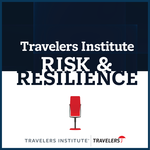
Tune in to “Recruiting Your Rising Stars: Engaging the Insurance Industry’s Emerging Talent,” available on Apple Podcasts® and Spotify.
Learn more, explore the most recent episodes and subscribe to the Travelers Institute Risk and Resilience podcast.
Summary
What did we learn? Here are the top takeaways from Recruiting Your Rising Stars: Engaging the Insurance Industry’s Emerging Talent:
Students entering the insurance field want more than just jobs – they want to work for companies that foster personal development and meaningful connections, according to Gamma Iota Sigma’s 2024 Annual Survey of over 400 students and recent graduates from 41 colleges and universities. The survey revealed that 43% of respondents believe a company’s culture differentiates employers more than industry specialty, while an overwhelming 84% rate mentorship as very or extremely important. Career development is also top of list for students, Hartwig said. “They need to know they’re going to be mentored and appropriately trained and that there’s going to be someone who has their back,” he said.
Company investment in recruiting and retaining emerging talent can pay off down the road, Klein said. The Travelers EDGE® program is one way that Travelers invests in talent, by helping to fund the college educations of students from traditionally underserved communities. Klein noted that about half of participants wind up working for Travelers. “Some could look at that number as not a good return on investment, but I would argue quite the opposite,” he said. “Investing in the future talent for this industry benefits the talent, organizations and our industry over time,” he said. To retain talent, Perlman recommends mentorship programs, ongoing education and formal recognition for achievements, as well as giving employees opportunities to take on new responsibilities and advance in their careers.
New insurance industry talent also seeks work-life balance, attractive compensation and competitive benefits, according to a recent survey conducted by Aon. Aon’s research found that emerging talent prioritizes better-than-average pay and meaningful benefits (50%), but like those in the Gamma Iota Sigma survey, they also value a positive company culture with a fun place to work (25%), Perlman said. The Gamma Iota Sigma survey also highlighted that 48% of respondents were introduced to insurance careers by faculty, underscoring the importance of academic partnerships in talent development.
Insurance companies and tech-savvy job seekers are both navigating a competitive labor market. Insurance companies are facing stiff competition for talent from brokers and organizations outside the industry, Klein pointed out. Economic uncertainty has extended job search timelines, Hartwig noted, adding, “It’s taking new graduates longer to lock down a position.” While today’s students harbor concerns about AI replacing jobs, they’re also remarkably tech-savvy, Perlman observed. “They’re open to innovation and willing to adopt new technologies to improve service delivery and operational efficiency,” she said. The industry has responded by expanding beyond traditional recruitment pipelines to include data scientists, business intelligence analysts and technology specialists – creating roles with skills that are “more generalizable across multiple industries,” Klein explained.
Smaller agencies need to be proactive to attract and retain emerging talent, suggested Hartwig. Competing with larger and midsized carriers and brokers on compensation can be a big challenge for smaller agencies in recruiting talent, he said. “That’s the segment in which we place the fewest students,” he said, noting that compensation is often the obstacle. His advice: “Get here early and get here often,” he said, noting that allowing a student to experience the agency environment may improve your odds of hiring them at graduation. And Perlman noted that Aon has a two-year paid apprenticeship program that offers participants the opportunity to earn while also gaining practical experience. “Apprenticeship and mentorship programs are critical,” she said.
Speakers
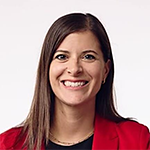
Denise Perlman
Chief Executive Officer, Middle Market, Aon
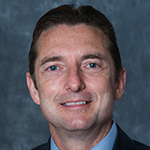
Robert Hartwig, Ph.D., CPCU
Associate Clinical Professor of Finance and Director of the Risk and Uncertainty Management Center, University of South Carolina
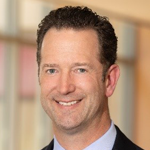
Michael F. Klein
Executive Vice President; President, Personal Insurance, Travelers
Board of Trustees Member, Gamma Iota Sigma
Host
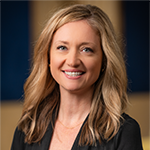
Jessica Kearney
Vice President, Public Policy, Travelers Institute
Presented by
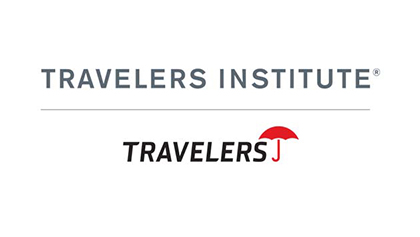
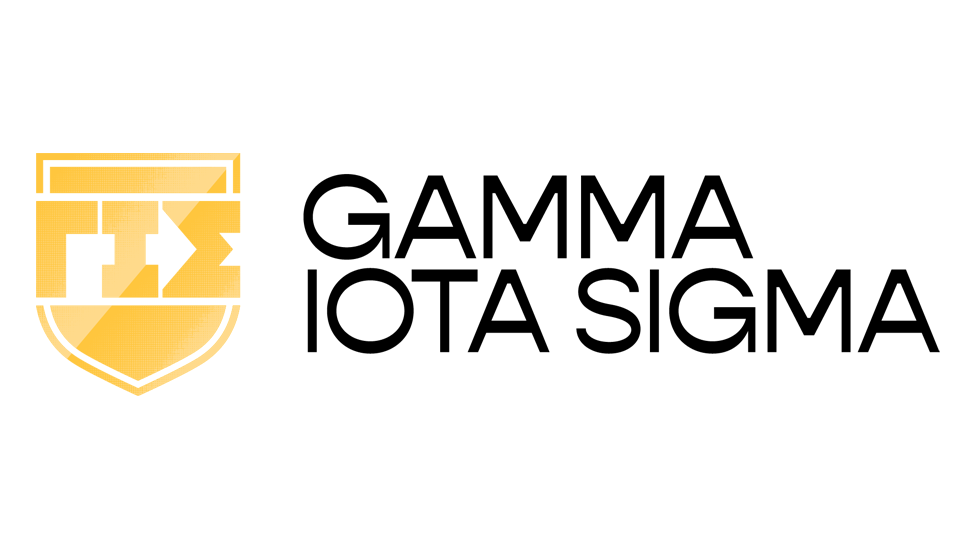
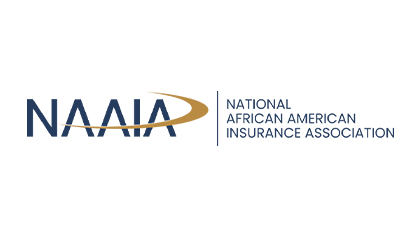
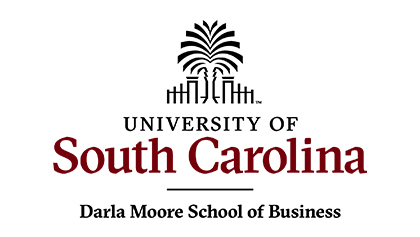
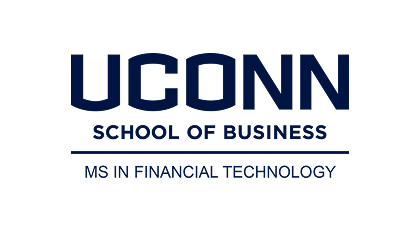
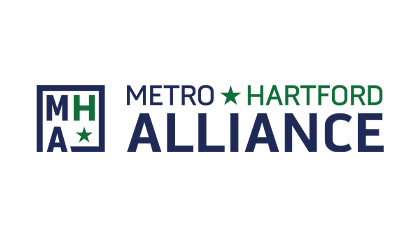
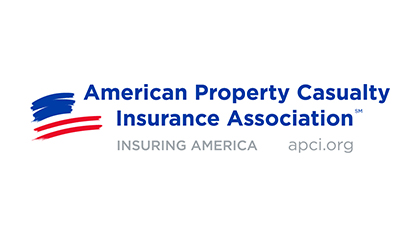
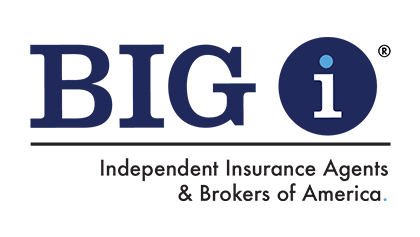
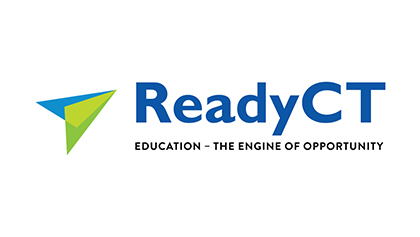
Related content
What Do Today’s Students Want from Insurance Employers? Insights from Gamma Iota Sigma
Travelers Executive Vice President and President of Personal Insurance Michael Klein sat down with Gamma Iota Sigma Executive Director Grace Grant to discuss what today’s insurance students are looking for in their future employers.
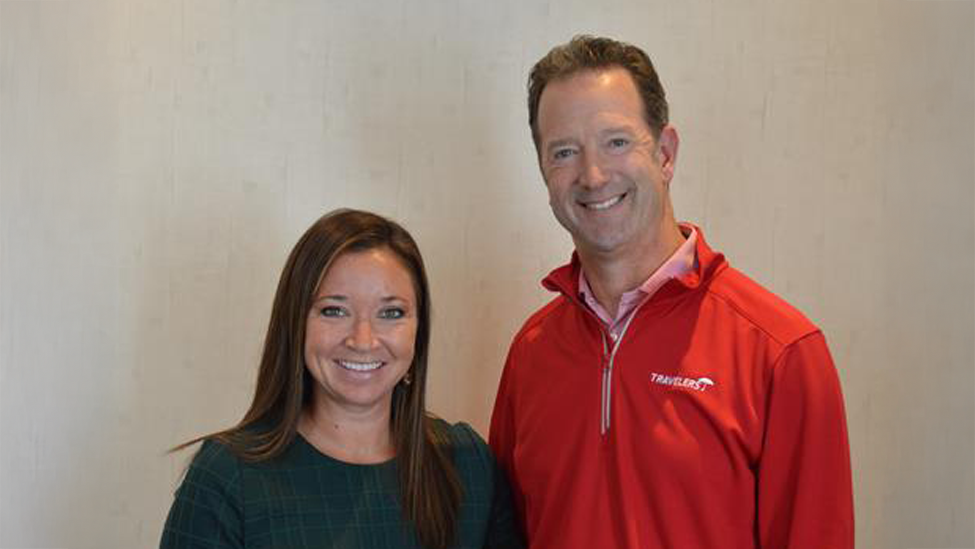
An Insurance Agent's Field Guide to Generation Z
Are you wondering how to reach Gen Z, the 69 million young Americans born between 1997 and 2012? In this webinar, we explored Gen Z's beliefs, values and expectations around insurance.
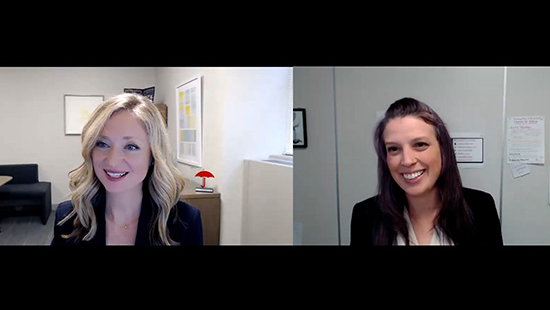
Future-Focused: Strategies for Engaging Emerging Talent
Why and how should organizations invest in emerging talent to recruit and retain tomorrow’s business leaders? In this webinar, we explored workforce demographic trends influencing the labor market and shared insights from existing talent programs.
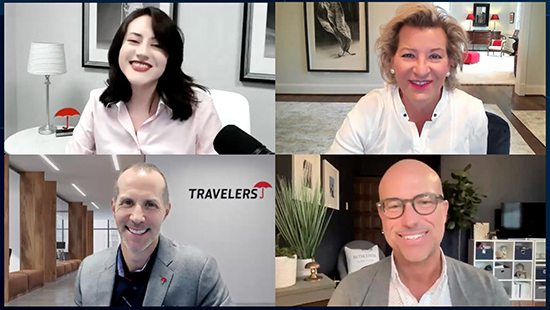
Related news
Mission, purpose not high on wish list of industry newbies: Informal talent poll
August 12, 2025 | Carrier Management
Insurers struggle to grab new professional talent
August 10, 2025 | Digital Insurance